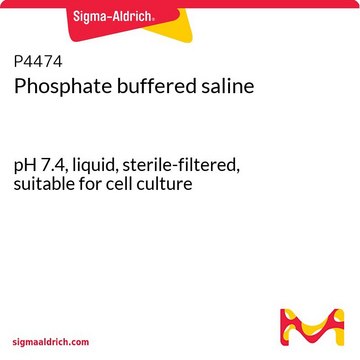T-005
(−)-trans-Δ9-THC solution
1.0 mg/mL in methanol, ampule of 1 mL, certified reference material, Cerilliant®
Synonym(s):
Dronabinol solution
About This Item
Recommended Products
grade
certified reference material
Quality Level
form
liquid
feature
Snap-N-Spike®/Snap-N-Shoot®
packaging
ampule of 1 mL
manufacturer/tradename
Cerilliant®
drug control
Narcotic Licence Schedule D (Switzerland); psicótropo (Spain); Decreto Lei 15/93: Tabela IIB (Portugal)
concentration
1.0 mg/mL in methanol
technique(s)
gas chromatography (GC): suitable
liquid chromatography (LC): suitable
application(s)
cannabis testing
cannabis testing
format
single component solution
storage temp.
−20°C
InChI
1S/C21H30O2/c1-5-6-7-8-15-12-18(22)20-16-11-14(2)9-10-17(16)21(3,4)23-19(20)13-15/h11-13,16-17,22H,5-10H2,1-4H3
InChI key
CYQFCXCEBYINGO-UHFFFAOYSA-N
Looking for similar products? Visit Product Comparison Guide
General description
(−)-trans-Δ9-THC is one of the four isomers of the phytocannabinoid tetrahydrocannabinol (THC), the main psychoactive constituent of cannabis.
Application
- An Alternative Method for the Selective Synthesis of Ortho-nitro Anilines Using Bismuth Nitrate Pentahydrate.: This study highlights the use of Bismuth(III) nitrate as a catalyst in the selective synthesis of ortho-nitro anilines. Demonstrating significant improvements over traditional methods, this research introduces an efficient approach to synthesizing key intermediates used in the production of dyes, drugs, and agrochemicals. The study underscores Bismuth(III) nitrate′s role in enhancing reaction selectivity and reducing environmental impact, making it a valuable asset in green chemistry applications (Loera-García et al., 2024).
Features and Benefits
- Fully characterized under ISO/IEC 17025 and ISO 17034 accreditation
- Accompanied with a comprehensive Certificate of Analysis (CoA) with data on stability, homogeneity, accuracy of concentration, uncertainty, and traceability
- Rigorously tested through real-time stability studies to ensure accuracy and shelf life
- Gravimetrically prepared using qualified precision balances to ensure minimal uncertainty
- Flame sealed under argon into ampoules for long-term shelf life
- Offered in a convenient, DEA-exempt format to improve laboratory efficiency
Legal Information
related product
Signal Word
Danger
Hazard Statements
Precautionary Statements
Hazard Classifications
Acute Tox. 3 Dermal - Acute Tox. 3 Inhalation - Acute Tox. 3 Oral - Flam. Liq. 2 - STOT SE 1
Target Organs
Eyes,Central nervous system
Storage Class Code
3 - Flammable liquids
WGK
WGK 2
Flash Point(F)
51.8 °F - closed cup
Flash Point(C)
11.0 °C - closed cup
Certificates of Analysis (COA)
Search for Certificates of Analysis (COA) by entering the products Lot/Batch Number. Lot and Batch Numbers can be found on a product’s label following the words ‘Lot’ or ‘Batch’.
Already Own This Product?
Find documentation for the products that you have recently purchased in the Document Library.
Customers Also Viewed
Articles
Analysis of Tetrahydrocannabinol (THC) and Carboxytetrahydrocannabinol (THCCOOH) in Surface Waters by SPME and GC/MS
-THC solution, 1.0 mg/mL in methanol, ampule of 1 mL, certified reference material; Cannabichromene solution, 1.0 mg/mL in methanol, ampule of 1 mL, certified reference material
LC-MS/MS is a powerful tool that brings numerous benefits to the clinical sample analysis arena. However, due to the complexity of the instrumentation there are some unique challenges that also accompany these benefits. Even following sample extraction and cleanup, matrix effects from the samples can cause interferences or impact ionization efficiency.
The cannabinoids found in the Cannabis plant commonly referred to as marijuana, have grown in popularity for treating a variety of ailments from arthritis, glaucoma, and chronic pain to malnutrition, multiple sclerosis, and cancer.
Protocols
Potency testing in marijuana-infused edibles is an important problem that analytical labs are facing due to the complexity of the involved matrices. Concentration of active ingredients in these edibles can range from a few parts per million to 3.5 parts per thousand. This application demonstrates the extraction and HPLC-UV analysis of the active compounds.
THC solution, 1.0 mg/mL in methanol, ampule of 1 mL, certified reference material; Cannabidiolic acid solution, 1.0 mg/mL in acetonitrile, ampule of 1 mL, certified reference material; Cannabichromene solution, 1.0 mg/mL in methanol, ampule of 1 mL, certified reference material; Cannabigerolic acid solution, 1.0 mg/mL in acetonitrile, ampule of 1 mL, certified reference material; Δ9-Tetrahydrocannabinolic acid A (THCA-A)
THC solution, 1.0 mg/mL in methanol, ampule of 1 mL, certified reference material; Cannabidiolic acid solution, 1.0 mg/mL in acetonitrile, ampule of 1 mL, certified reference material; Cannabichromene solution, 1.0 mg/mL in methanol, ampule of 1 mL, certified reference material; Cannabigerolic acid solution, 1.0 mg/mL in acetonitrile, ampule of 1 mL, certified reference material; Δ9-Tetrahydrocannabinolic acid A (THCA-A)
Rapid potency testing of marijuana-infused edibles using LC/MS on a biphenyl stationary phase detected eleven cannabinoids.
Our team of scientists has experience in all areas of research including Life Science, Material Science, Chemical Synthesis, Chromatography, Analytical and many others.
Contact Technical Service











